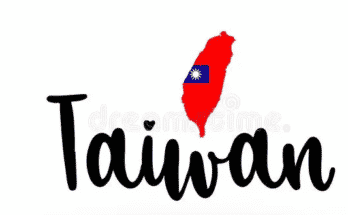Factory Worker Hiring In New Zealand If you’re looking for factory worker jobs in New Zealand, you’re in luck. This article will give you the information you need to become a factory worker, including salary increases, minimum wage and job opportunities. You can also learn about agricultural jobs in New Zealand. Listed below are some of the most popular categories of factory jobs in New Zealand. The next section will be about factory worker jobs in the primary sector.
The minimum wage for factory workers
While there are no hard and fast rules, a minimum wage in New Zealand is something that all workers should receive. Among the most important aspects of a minimum wage is its level of protection and its ability to keep workers safe. Factory workers face the threat of exploitation on a daily basis, which makes a minimum wage even more essential. In this video, Vangeline McCann discusses the salary of factory workers in New Zealand. She has already made a YouTube video on the subject and got many requests from viewers asking what her minimum rate should be.
The Minister for Workplace Relations and Safety must regularly review the minimum wage, and report changes by 31 December. Minimum wages have increased in New Zealand annually since 2000. They include adult employees, new entrants, trainees, and those under 16 years of age. The minimum wage applies to all industries in the country, and failure to pay the correct amount of wages can result in severe penalties for employers. The government has also issued a list of minimum wage rates, which employers must comply with.
Salary increases for factory workers
Despite ongoing labour shortages, factory and manufacturing professionals can expect to enjoy wage increases of up to 8% every 16 months. While increases vary, they are likely to be larger than in the past few years and will depend on the individual’s contribution and performance. The figures are the highest since March 2009.
The budget allocated 3.9% to wage increases for existing employees, and most companies are expected to raise wages for existing employees. Wage increases for entry-level workers will be higher than for executives. This increase is the highest since March 2009. The wage index measures changes in all wage and salary rates, including overtime. The adjusted LCI takes into account changes in the type, quality, and quantity of work. The unadjusted LCI includes only price changes attributable to changes in work.
Job opportunities for factory workers in the primary industry
The government’s Employment Outlook Report 2018 has highlighted strong growth prospects for factory workers in New Zealand. As the country’s economy strengthens, employment opportunities are expected to grow for all workers in this sector. This includes skilled workers who can operate high-tech machinery. Factory workers can apply for job vacancies through public advertising or by contacting employers. The National Skills Training Authority (NZQA) offers training and qualifications for factory workers.
There are no specific entry requirements to become a factory worker in New Zealand, but many positions in this sector will require extensive on-the-job training. Inexperienced factory workers will typically start on minimum wages or training wages. However, employers look for employees who are dependable, and some may even require drug tests. Overall, factory workers earn between Php 89000 and Php 131,000 per month.
Agricultural jobs in New Zealand
The number of vacancies in the farming industry is growing rapidly in New Zealand. It is an exciting and rewarding career opportunity. However, you should consider the time commitment involved. The country’s agricultural industry requires long-term commitments and a good work ethic. If you’re interested in finding a farming job in New Zealand, read on to learn about the different opportunities.
Listed below are some of the common positions in the farming industry.
Employment in New Zealand’s agricultural sector is expected to rise a further 5% over the next five years. The country exports more food and fibre than any other country in the world. As of February 2018, exports of meat and dairy products were valued at nearly $19 billion per year. In 2020, the Ministry for Primary Industries forecasts that food and fibre exports will increase by a further five per cent, reaching $56.8 billion a year.
The average salary for factory workers in New Zealand
The average factory worker’s salary will increase by 32% by 2022, according to the latest government statistics. This increase is seen across many industries, with a wide range of wage levels and experience. Although this rise is relatively modest, it still represents a significant increase from previous years. In addition, it reflects the sluggish growth in the supply of workers in New Zealand. Although this is not a reason for despair, many factory workers may wish to take up a higher-paying profession.
An OFW YouTuber named Vangeline McCann recently posted a video on the average salary of factory workers in New Zealand. She had already discussed this topic before and received several requests from viewers who asked her about it. She provided current rates of wages and other information on her channel, which is called the OFW YouTube channel. However, she did not mention the minimum rate in the video. Instead, she emphasized the need for factory workers to be aware of their pay before setting out on a new job in a foreign country.
How To Apply?
If Your Interested to Apply List Of Jobs Are Present There So, Click The Below Button.



